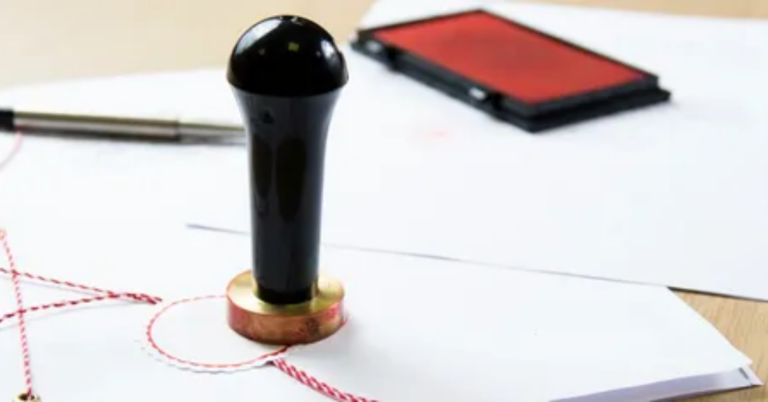Can a Mobile Notary Notarize Electronically?
In today’s digital age, many industries are moving online, and the world of notarization is no exception. But can a Mobile Notary perform an electronic notarization? The short answer is yes—provided state law permits it and the notary has the proper authorization and technology. Electronic notarization (e-notarization) and remote online notarization (RON) are revolutionizing how notarial acts are performed, offering convenience, efficiency, and enhanced security. This article explores the evolution, legal frameworks, technology platforms, and practical applications of electronic notarization by mobile notaries, as well as its use in specialized settings like hospitals, jails, emergency scenarios, and airports.
Understanding Electronic Notarization
Electronic notarization refers to the process where a notary public notarizes a document in electronic form, affixing an electronic signature and seal instead of pen and ink. Unlike RON, which occurs entirely via audiovisual technology, standard e-notarization still requires the signer and notary to be physically present—often in a mobile notary’s case, meeting at a client’s location.
Electronic notarization offers:
-
Increased Efficiency: Documents can be signed and notarized in minutes, then emailed or uploaded instantly.
-
Enhanced Security: Digital signatures are cryptographically secured, tamper-evident, and logged in an audit trail.
-
Environmentally Friendly: Reduces paper usage and physical storage needs.
The Evolution of Notary Practices
Notarization has come a long way from traditional ink-based methods. Originally, all notarizations required in-person visits to an office or public location. As technology advanced, many jurisdictions began to permit electronic seals and signatures. The key milestones include:
-
Introduction of Digital Seals (Early 2000s): States began recognizing electronic notary seals and signatures under UETA (Uniform Electronic Transactions Act) and ESIGN Act.
-
Standard E-Notarization (Mid-2010s): Notaries could use secure platforms to affix electronic signatures when signers were physically present.
-
Remote Online Notarization (Late-2010s): Some states authorized RON, where signers and notaries connect via secure video conferencing.
These developments have paved the way for mobile notaries to adopt electronic tools, making it possible to notarize documents on tablets or laptops during home visits or on the go.
Legal Framework Across States
Each U.S. state sets its own rules for electronic notarization. Key elements include:
-
Authorization: Notaries must receive explicit approval from their commissioning authority or state Secretary of State to perform e-notarizations.
-
Technology Standards: Platforms must meet security, identity-proofing, and record-keeping requirements.
-
Record Retention: Notaries are often required to maintain an electronic journal and record details of each notarization.
For example, Texas and Virginia allow both e-notarization and RON, while California permits only in-person e-notarizations. Notaries must stay current with their state’s statutes and administrative codes before offering electronic services.
Technology Platforms and Security
To perform electronic notarizations, mobile notaries rely on certified technology platforms that provide:
-
Identity Verification: Multi-factor authentication, credential analysis, and knowledge-based questions.
-
Secure Signing Environment: Encrypted transmission, tamper-evident seals, and timestamping.
-
Audit Trails: Comprehensive logs capturing IP addresses, timestamps, and signer actions.
Leading providers include Notarize, DocVerify, and NotaryCam. These platforms integrate seamlessly with mobile devices, allowing notaries to carry portable setups for remote document execution.
Use Cases for Electronic Notarization
Electronic notarization is ideal in many scenarios where speed, security, and convenience are critical. Let’s examine specific environments and situations where mobile electronic notarization shines.
High-Risk Environments: Hospitals and Correctional Facilities
When patients or inmates cannot leave secure locations, a mobile notary can offer on-site electronic notarization. For those in medical care, relying on a Hospital Notary Service ensures that vital documents—like advance directives or power of attorney—are executed quickly and securely. In correctional settings, a Jail Notary Service with electronic capabilities can handle legal filings, bond paperwork, and parole agreements without exposing staff or inmates to additional risks.
Emergency Situations and Remote Locations
Natural disasters, lockdowns, or urgent time-sensitive matters may prevent traditional notarizations. Mobile notaries offering Emergency Notary Services equipped for e-notarization can travel to client locations or conduct secure remote sessions to complete closings, contracts, or loan signings. The electronic process minimizes delays and ensures critical documents are notarized even under adverse conditions.
Travel Hubs and On-Demand Access
Business travelers and frequent flyers often need notarizations on short notice. A mobile notary capable of providing Airport Notary Services with electronic tools can meet clients in terminals or lounges, ensuring travel documents, visa papers, or international agreements are notarized before takeoff. This blend of mobility and digital technology elevates service convenience for busy professionals.
By leveraging state-of-the-art e-notarization platforms, mobile notaries expand their service offerings and meet the dynamic needs of clients in hospitals, jails, airports, and emergency scenarios. When considering electronic notarization, ensure the notary is properly commissioned for e-notarizations, uses a compliant platform, and follows all legal requirements. As more jurisdictions adopt robust frameworks for digital notarization, the role of the mobile notary will continue to evolve—making secure, efficient, and accessible notarization a reality for all.







